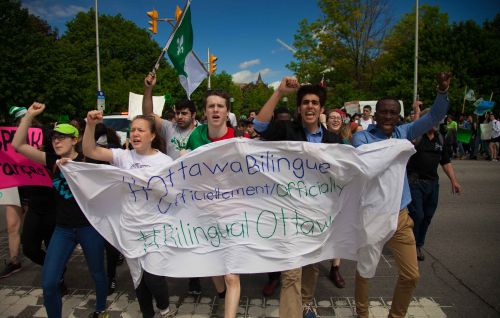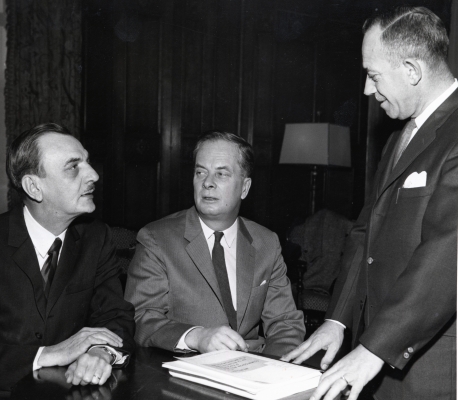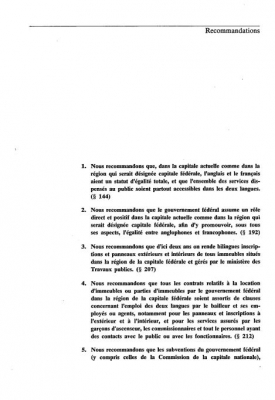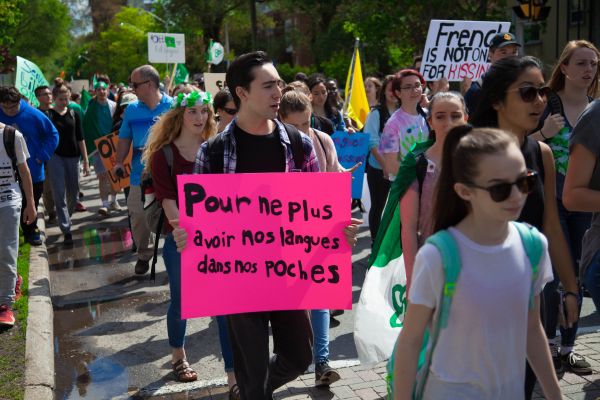The City of Ottawa, Canada’s capital since 1867, takes a long time – until 1970 – to adopt its first bilingualism policy. It takes pressure from the Royal Commission on Bilingualism and Biculturalism (B.B. Commission) to compel the City to take action.
The question of the capital’s bilingual status has been on the table for discussion since well before 1970. But city council, with Charlotte Whitton at the helm, is firmly opposed to it. The conclusions of the B.B. Commission, which takes an interest in Ottawa as a place of French life, force the city to move forward. While the Commission does not go so far as recommending that Ottawa become the 11th province or a federal district, in the section of the report concerning the capital, it does express the wish that the city adopt a bilingualism policy.
It is Alta Vista councillor Pierre Benoît who sets things in motion. His requests for clarification regarding the City’s hiring policies and language considerations force the creation of a committee. The comprehensive policy on bilingualism they manage to produce within less than a month is adopted almost unanimously on October 19, 1970. Former Mayor Whitton, now a simple councillor, abruptly leaves the council at the time of the vote.
Ottawa’s French-language services increase as a result. But the changes are slow, especially regarding issues of working in French in the city. In 1979, Le Droit reports that a municipal employee, Claude Lepage, blames the termination of his employment on the fact that he spoke French to his co-workers. Wanting to avoid a linguistic crisis, Mayor Marion Dewar asks Lucien Bradet, a well-known school board member in the region, to gauge the extent to which the bilingualism policy is able to meet the needs of the Francophone population. The Bradet report is damning. It concludes that, since most of the measures regarding French services are left to the discretion of public servants, little has actually changed. Mayor Dewar demands that the bilingualism policy be re-written, and a new policy is tabled in 1981.
The provision of French-language services improves in the 1980s and 1990s, but the issue of the City of Ottawa’s bilingualism policy comes back to the forefront at the turn of the century. When Ontario requires Ottawa-Carleton regional municipalities to merge into one large city, a language-related question arises: will this newly merged city also have a bilingualism policy?
In May 2001, a bitter debate ensues at City Hall between supporters of bilingualism and supporters of English unilingualism. The former win: the old policy will be applied to the new city. The Le Blanc and Leblanc Report commissioned by the City of Ottawa’s French Language Services Branch in 2007 reveals, however, that the former unilingual communities in the west of the city still struggle more than five years after the merger to offer quality French-language services. An important step is taken in December 2017, when a provincial bill makes the City of Ottawa officially bilingual. But in the aftermath of the 150th anniversary of Confederation, there is still much to do to improve French-language services in the national capital of Canada.
Citizens march to call for the City of Ottawa to become officially bilingual, May 31, 2017. Photo: Jean-Philippe Héroux.
Fédération des élèves du secondaire franco-ontarien.
.





